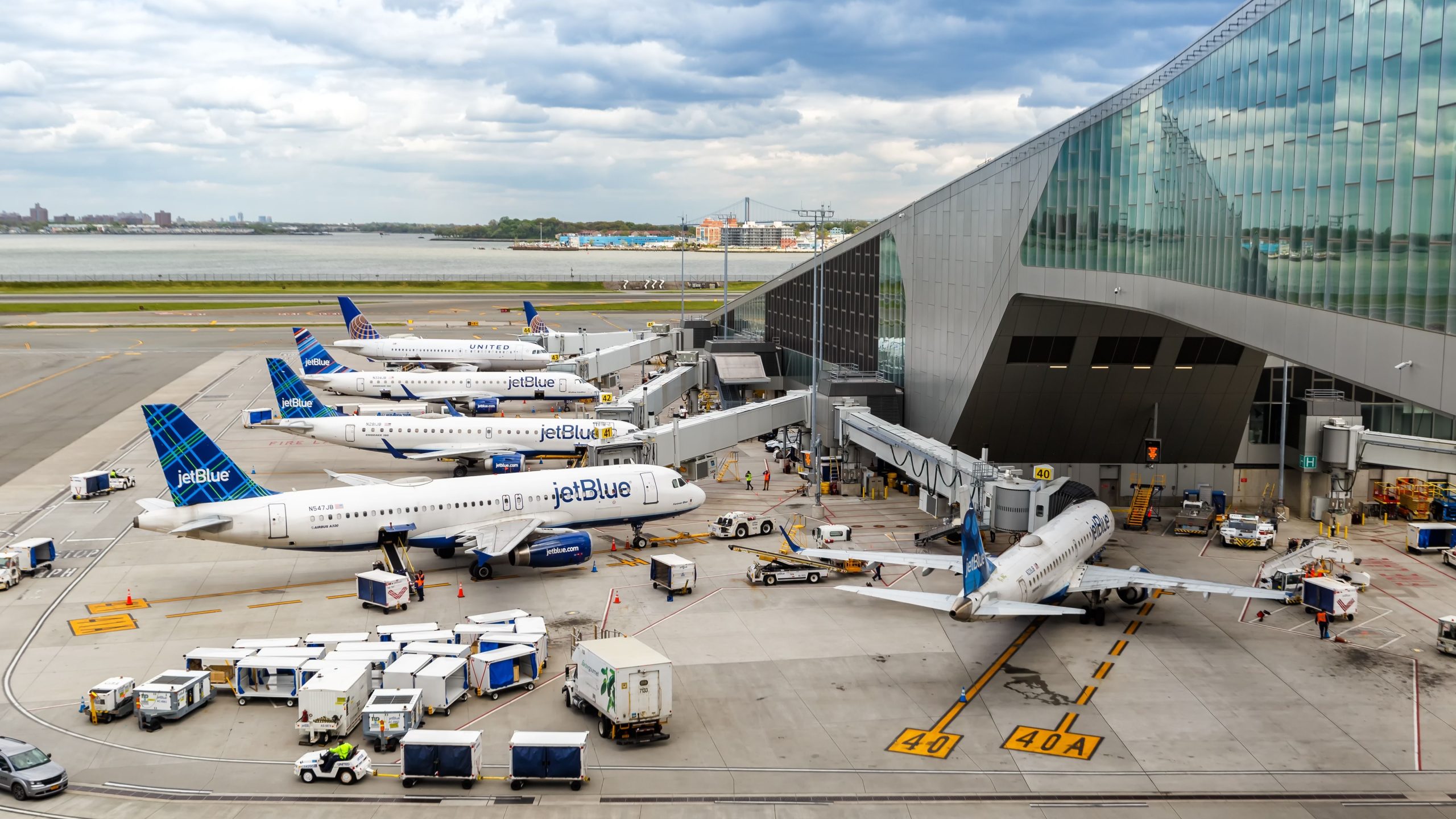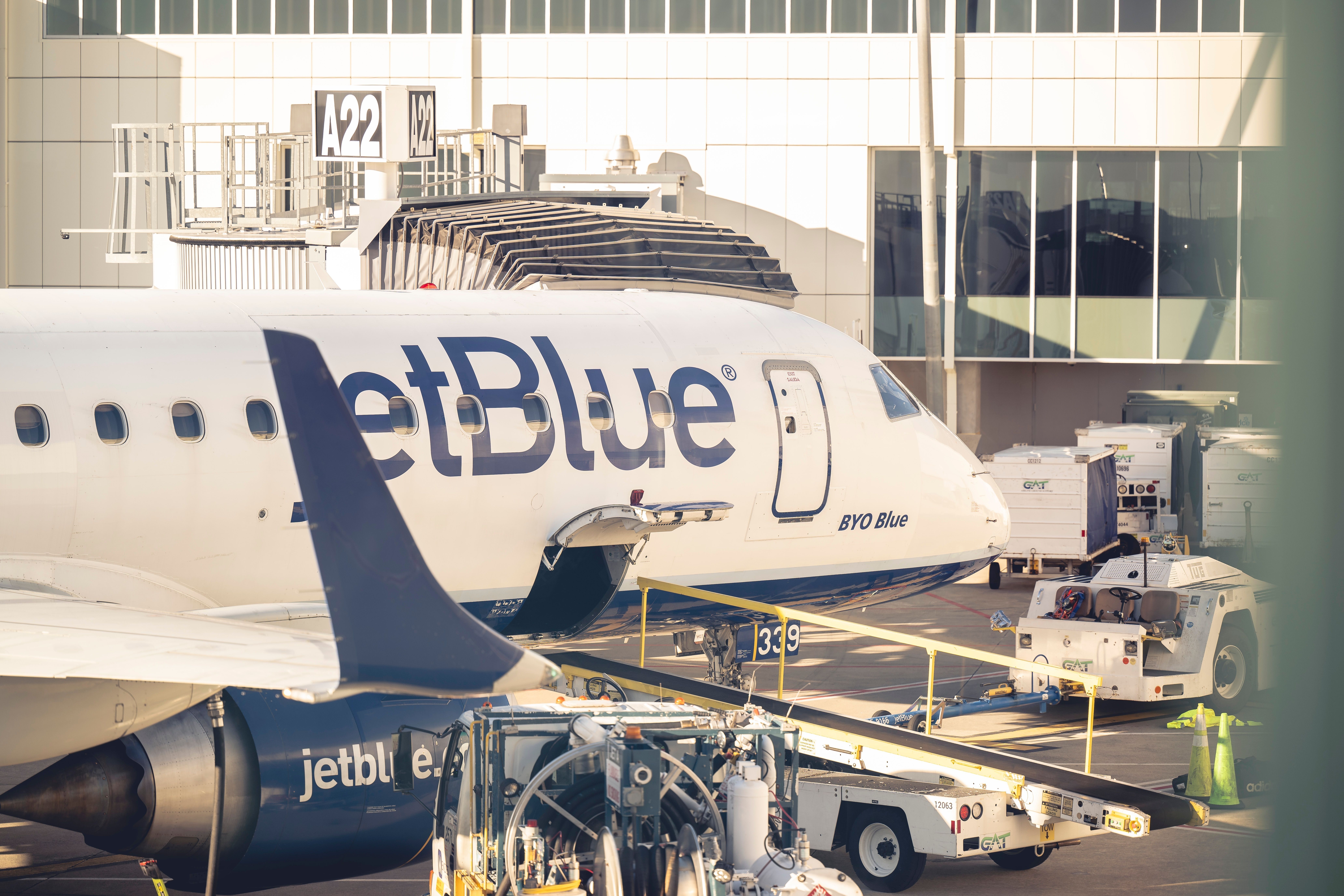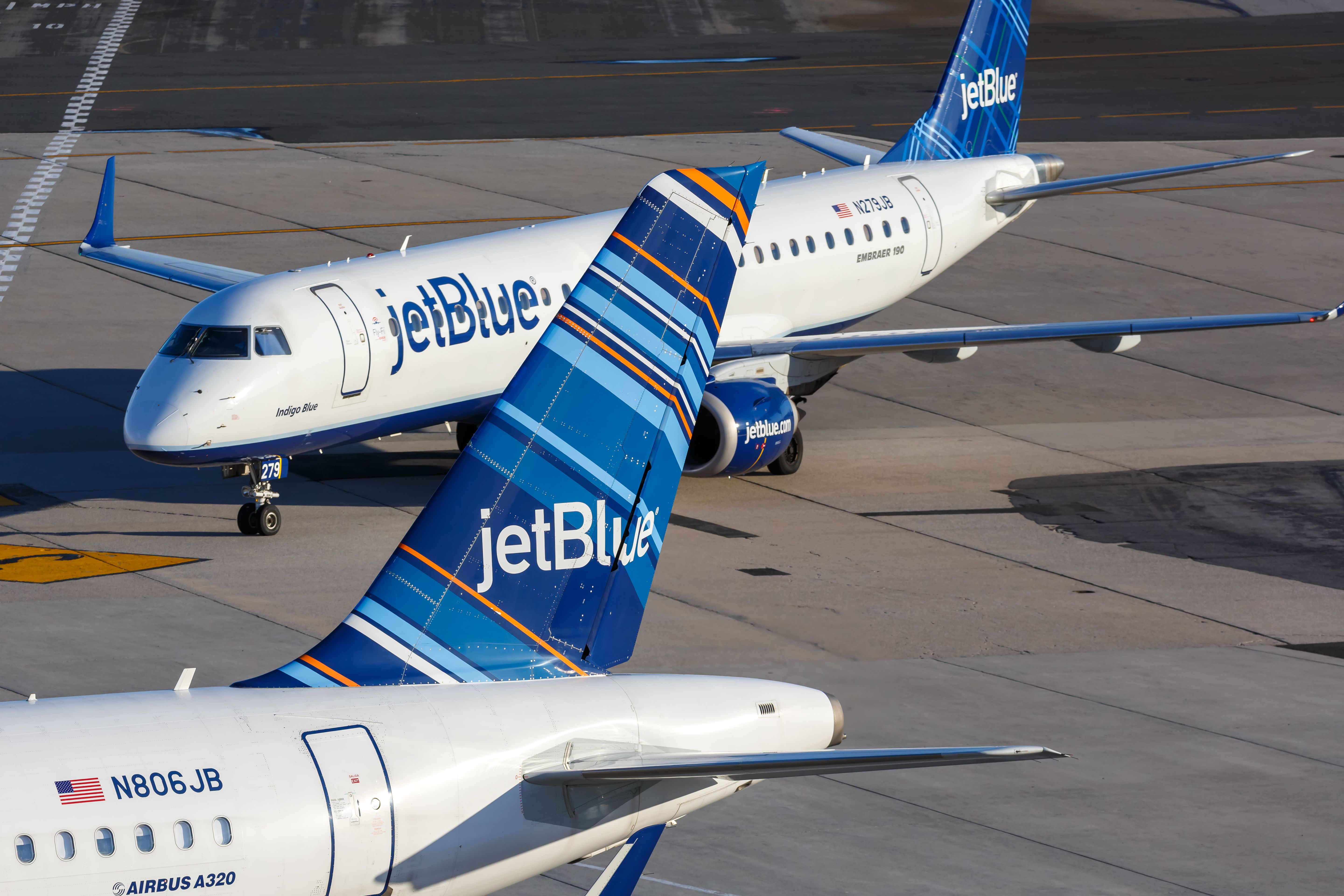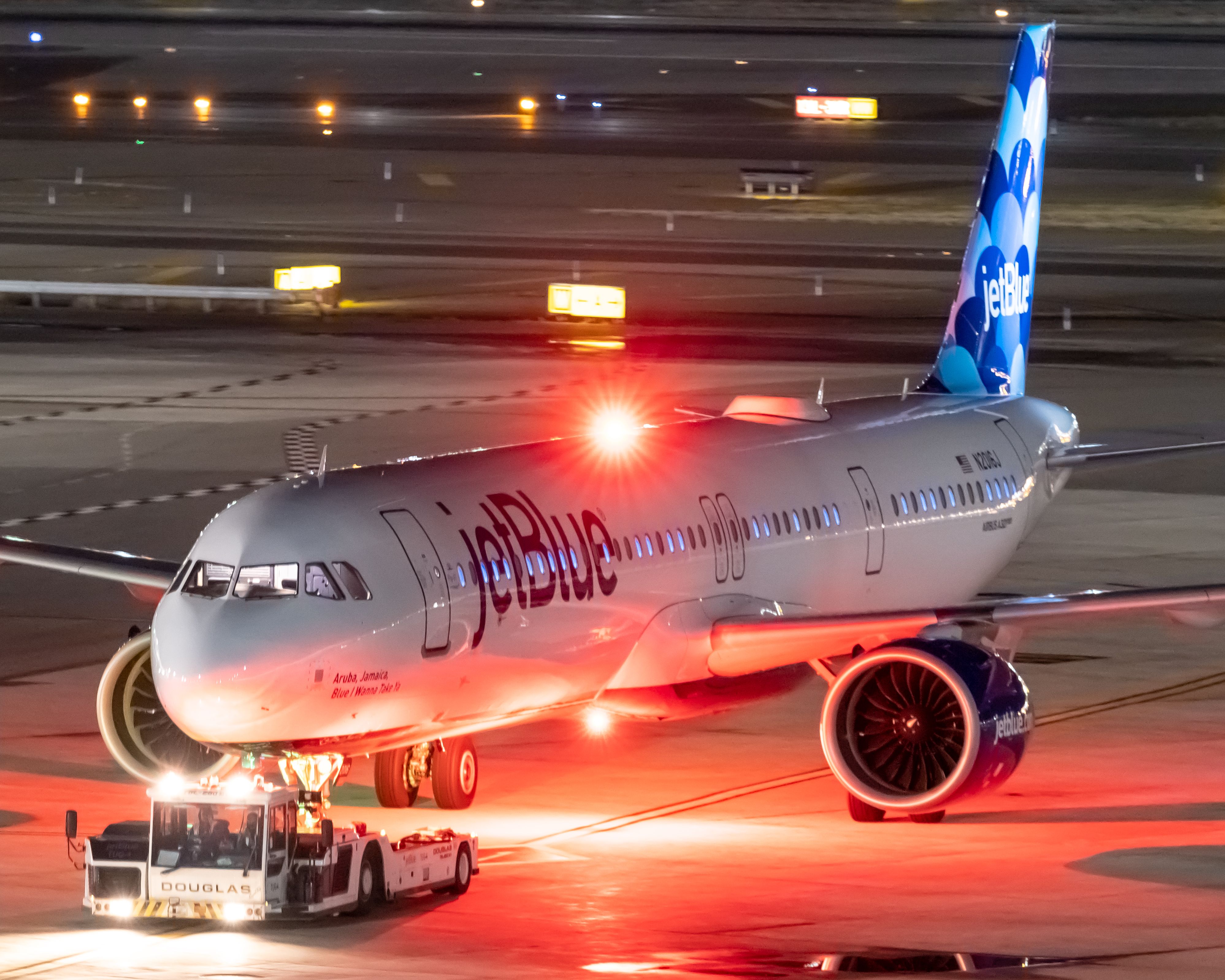Summary
- JetBlue has warned of lower profits in Q3 due to poor weather and ATC staffing shortages, leading to increased operational costs.
- The termination of its Northeast Alliance with American Airlines and declining domestic demand are also contributing to the airline’s challenges.
- Prolonged ATC staffing shortages force JetBlue to scale back services, resulting in decreased revenue growth for the full year.
Stormy skies are set to dampen JetBlue’s third-quarter revenues, Reuters reports. The New York-based low-cost carrier is warning that weather-induced disruption over the summer travel season and air traffic control (ATC) staffing shortages are increasing operational costs through Q3.
Limitations and setbacks
Following a bumper Q2, JetBlue cautioned of lower-than-anticipated profits through Q3 and Q4, with the carrier noting a decline in domestic demand as tourists seek far-flung international getaways and a “challenging operating environment in the Northeast” amid the termination of its Northeast Alliance with American Airlines. In a filing to the Securities and Exchange Commission posted on September 28, the carrier clarified the impact of ATC disruption and soaring costs on its operations throughout the month,
“As a result, for the third quarter of 2023 JetBlue now anticipates revenue to be near the low end of the Company’s previous guidance range and CASM Ex-Fuel to be near the high end of the Company’s previous guidance range.”
The latest update follows a sharp increase in crude oil prices impacting many carriers across the United States; earlier this month, JetBlue raised its forecast by $0.20 to $2.95 per gallon, adding further strain to its expenses.
Photo: Wirestock Creators/Shutterstock
Prolonged ATC staffing shortages are also weighing heavily on JetBlue. Speaking to Reuters, CEO Robin Hayes noted that the airline is already looking to scale back services to limit the impact on the overstrained ATC system. Hayes explained,
“In the short to medium term we have to reduce flights in very impacted airports because the system can’t cope with the number of flights today. We’re selling flights that we know we won’t be able to operate because of ATC challenges.”
Looking forward to the end of the year, full-year revenue is expected to only grow around 6 to 9% in 2022, a noted decrease on the previously projected low double-digit figure.
Sustaining growth
An overall drop in demand from US travelers has seen the airline cut Cuba from its network. Services between the US and the island were suspended on September 17 following a ramp-up in restrictions at both borders, putting an end to the carrier’s operations at Havana’s José Martí International Airport (HAV).
Photo: Markus Mainka | Shutterstock
Despite the decline, JetBlue is still seeing growing demand on specific domestic routes, including its recently launched service connecting New York’s John F. Kennedy International Airport (JFK) with Ronald Reagan Washington National Airport (DCA). Taking off earlier this month, the heavily requested route operates up to three times daily, connecting the US’ financial hub with its legislative capital.
Demand also remains high for international services. Through the summer travel season, the carrier launched direct transatlantic services from New York to Paris’ Charles de Gaulle International Airport (CDG) and Amsterdam Schiphol Airport (AMS), as well as Boston Logan International Airport (BOS) to Amsterdam. JetBlue’s transatlantic ventures have been a relative success for its international operations, with daily services offered on all routes.
What are your thoughts on JetBlue’s adjusted projections for Q3? Let us know in the comments.
Sources: Reuters (1) (2), FlightGlobal




